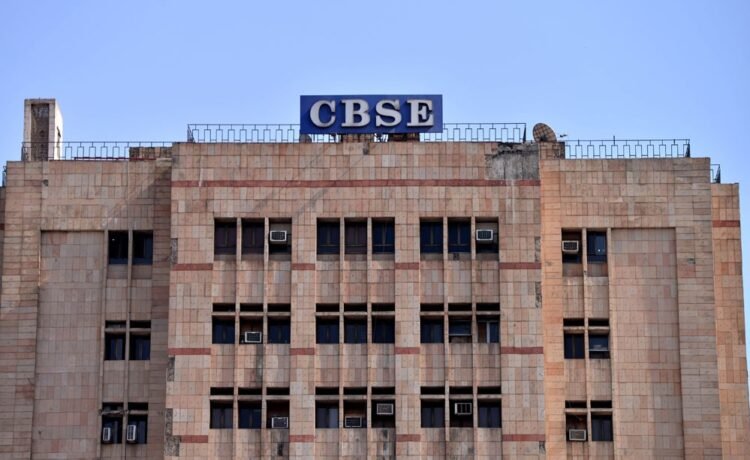NEW DELHI (India CSR): In a move that has sent shockwaves through India’s education system, the Central Board of Secondary Education (CBSE) has issued a stern warning: Class 12 students enrolled in so-called “dummy schools” may be barred from appearing in their board exams. Announced in early 2025, this decision underscores the growing concern over students skipping regular schooling to focus solely on competitive exams like JEE and NEET. For thousands of teenagers and their families, this could mean a drastic rethink of their academic strategies. With the stakes higher than ever, the spotlight is now on the controversial rise of dummy schools and their impact on young minds—a story that’s as much about ambition as it is about the unintended consequences of chasing dreams.
The Dummy School Phenomenon: What’s Happening?
A Shortcut to Success?
Dummy schools have become a thriving industry in India, particularly in education hubs like Kota, Delhi, and Bengaluru. These institutions enroll students on paper but don’t require them to attend classes. Instead, students use this loophole to dedicate their time to coaching centers, preparing for high-stakes entrance exams for engineering and medical colleges. CBSE’s surprise inspections in December 2024 across 29 schools in states like Gujarat, Bihar, and Chhattisgarh revealed the scale of this practice, with hundreds of students registered but absent from regular classrooms.
Why Students Choose Dummy Schools
The allure is clear: flexibility and focus. For instance, students eyeing state quotas—such as Delhi’s coveted medical college seats—enroll in dummy schools to meet eligibility criteria without the burden of daily school attendance. In Kota, a city synonymous with competitive exam preparation, posters advertising dummy schools with varying fees based on board affiliations are a common sight. Rates can range from Rs 10,000 to Rs 50,000 annually, depending on the institution and its reputation.
CBSE’s Response: Tightening the Reins
Surprise Inspections Uncover the Truth
Late last year, CBSE launched a crackdown to root out this practice. Teams visited schools unannounced, cross-checking attendance records against enrollment lists. The findings were alarming—scores of Class 11 and 12 students were nowhere to be found. “The responsibility lies with students and parents as much as the schools,” a CBSE spokesperson stated, emphasizing that education is more than just exam scores.
New Rules, Big Consequences
As of March 27, 2025, CBSE is finalizing regulations to disqualify students found exploiting dummy schools from sitting for their board exams. This could disrupt the plans of thousands who assumed they could bypass traditional schooling without repercussions. Schools facilitating such arrangements may also face penalties, including potential disaffiliation—a move that could shake up the education landscape.
The Human Cost: Beyond the Classroom
A Mental Health Crisis in Kota
Kota, often dubbed India’s coaching capital, has seen a troubling rise in student suicides, with 2024 marking a record high of over 25 cases. Experts link this crisis partly to the isolation fostered by dummy schools. “When students skip regular schooling, they miss out on peer interaction, extracurricular activities, and emotional support systems,” says Dr. Anjali Sharma, a child psychologist based in Rajasthan. “This restricted development can amplify stress and anxiety.”
Dreams Deferred, Not Denied
Take the story of Priya Mehra, an 18-year-old from Varanasi. Enrolled in a dummy school since Class 11, she spent two years at a coaching center preparing for NEET. “I thought it was the smart choice,” she says. “Now, I’m worried I won’t even get to take my boards.” Priya’s predicament reflects the uncertainty facing many students caught in this regulatory shift.
The Bigger Picture: Education vs. Competition
A System Under Pressure
India’s education system is at a crossroads. With over 1.5 million students appearing for NEET and JEE each year, the race for top college seats has overshadowed holistic learning. Dummy schools exploit this pressure, offering a workaround that prioritizes exam prep over education. But at what cost? “We’re raising a generation obsessed with marks, not knowledge,” warns Professor Ramesh Gupta, an education policy expert at Delhi University.
Calls for Reform
The CBSE’s crackdown has sparked debate. Some argue it’s a necessary step to restore integrity to schooling, while others see it as punishing students for a flawed system. “The government needs to address why students feel forced into this route—better counseling, fewer exams, more seats,” suggests Gupta. Until then, dummy schools remain a symptom of a deeper malaise.
What’s Next for Students and Parents?
Navigating the New Reality
For now, families are scrambling to adapt. CBSE has urged students to return to regular schooling and warned parents against trusting unverified institutions. Schools, meanwhile, are under pressure to prove compliance. With board exams just months away, the clock is ticking for those caught in the crosshairs.
A Chance to Reflect
This shake-up could be a turning point. As Priya puts it, “Maybe I’ll go back to school. I miss my friends—and maybe learning something other than biology.” Her words hint at a silver lining: a chance to reclaim the joys of education beyond the grind.
(India CSR)























